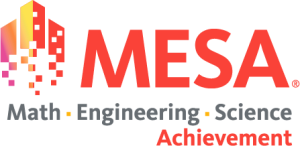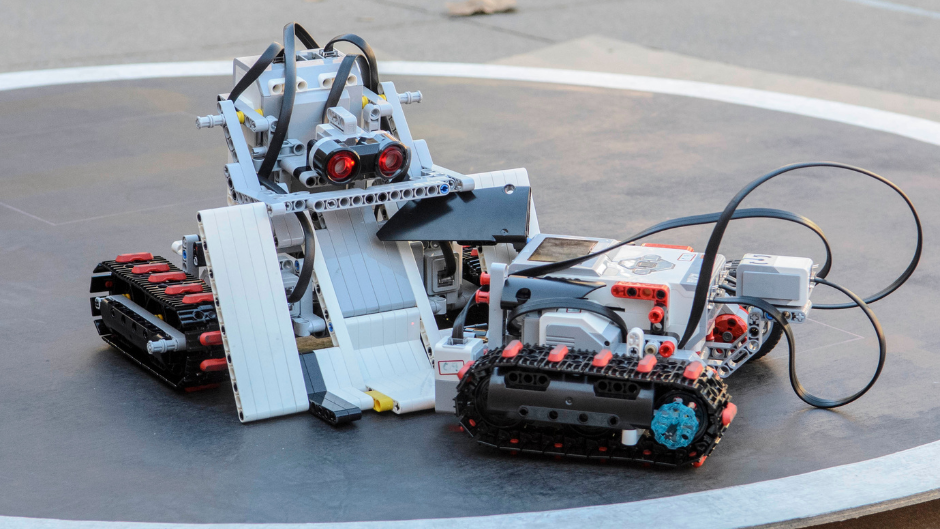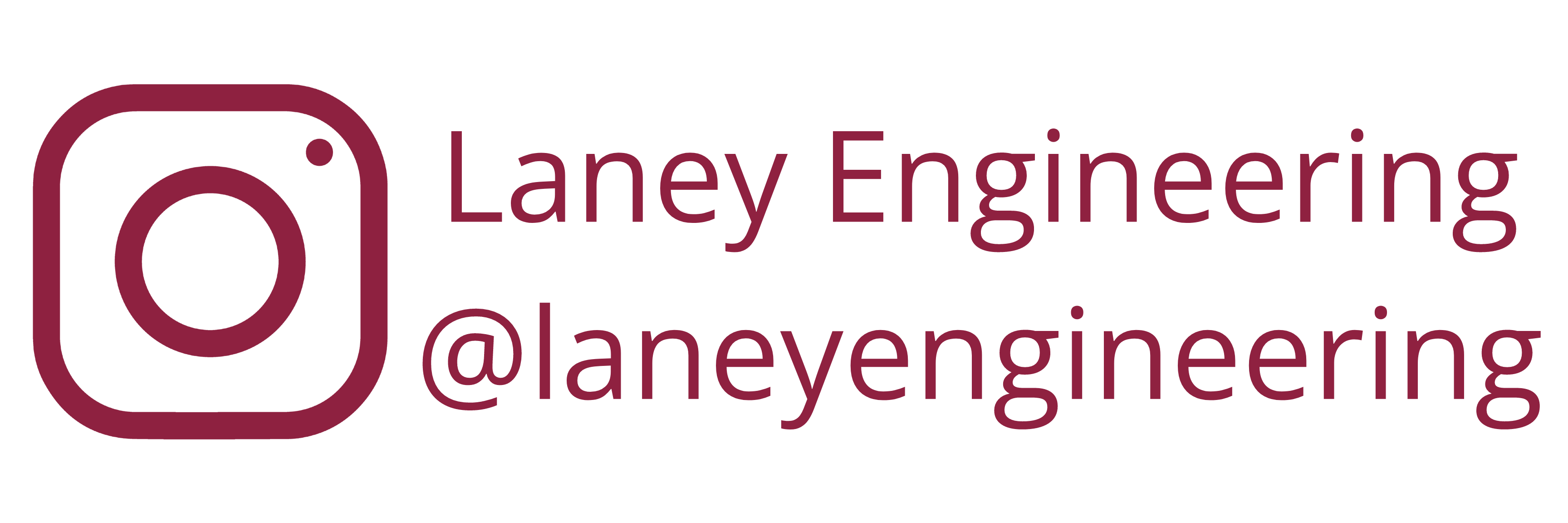Engineers design the systems, structures and products that keep the world running. Engineers specialize in one of a wide range of fields such as electrical engineering, mechanical engineering, chemical engineering, materials engineering, industrial engineering, civil engineering, and more. Depending on specialization, engineers can find work in a wide range of different settings from a manufacturing plant in Silicon Valley or energy efficient construction project in San Francisco to road building in Africa, petroleum exploration in the North Sea, or design of new nanotechnology products at a national laboratory.
Laney College offers the lower division engineering major preparation courses for transfer in good standing to colleges and universities across California and the U.S.
Engineering involves the application of scientific and mathematical principles to solve practical technical problems. In addition to the engineering courses, the preparation typically includes coursework in the sciences and mathematics, for example: Chemistry 1A and 1B (additional courses required for chemical Engineering), Physics 4A, 4B, and 4C, and Math 2A, 3A, 3B, 3C, 3E, and 3F. Because specific requirements vary among colleges and universities and between majors in different branches of engineering, students seeking transfer with an engineering major should consult with a Laney counselor to develop an appropriate Student Education Plan (SEP) and review CSU and UC engineering articulation agreements via the ASSIST website (www.assist.org) to ensure that all required courses for the major are completed.
What academic goals do our engineering students have?
Students taking our classes come to Laney for a variety of reasons. Most of the students who enroll in our classes have one of the following academic goals and motivations
-
- They are preparing to transfer to earn a Bachelor’s degree in engineering
- They already have a B.S. degree in an area other than engineering, and want to apply to an engineering graduate school
- They are high school students taking concurrent or dual enrollment classes to supplement their high school coursework
- They want to gain technical or analytical skills
Whatever your academic goals, Laney College Engineering has a class for you!
Click the + signs below to learn more about each of these motivations and to read testimonials from our former students.
Transferring to earn a Bachelor's Degree in engineering
Many of our students are taking our classes to prepare to transfer to a four year university as a 3rd year, or junior, in engineering. At Laney, we have all of the math, science, and engineering classes that you will need to transfer to a CSU or UC.
You can check the requirements for specific majors and universities as assist.org
Our students have transferred to UC and CSU programs all over the state.
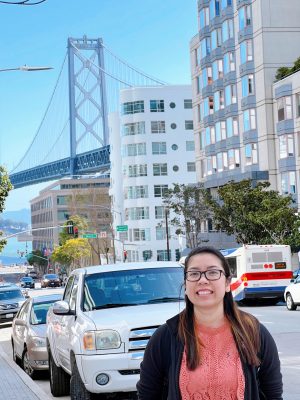 After graduating from Laney in Fall 2019, Chinh transferred to San Francisco State to major in Civil Engineering. She is currently working on her M.S. degree in Mechanical Engineering. Chinh says that Laney provided her with a strong foundation to prepare her for her higher level engineering courses. Her advice to future students: don't hesitate to ask questions!
After graduating from Laney in Fall 2019, Chinh transferred to San Francisco State to major in Civil Engineering. She is currently working on her M.S. degree in Mechanical Engineering. Chinh says that Laney provided her with a strong foundation to prepare her for her higher level engineering courses. Her advice to future students: don't hesitate to ask questions!
 Tara graduated from Laney College in Fall 2019 before transferring to earn her B.S. in Aerospace Engineering from UCLA. She is now working on a M.S. degree in Mechanical Engineering. Tara feels that Laney provided her with the tools and concepts she needed for her classes at UCLA. She says her favorite classes at Laney were her physics classes with Dr. Nicol, her properties of materials and engineering graphics classes with Professor Barkdull, and organic chemistry with Professor Trego. Her advice for students about to transfer from Laney: you are more prepared than you think and take time to learn MATLAB - you will need it!
Tara graduated from Laney College in Fall 2019 before transferring to earn her B.S. in Aerospace Engineering from UCLA. She is now working on a M.S. degree in Mechanical Engineering. Tara feels that Laney provided her with the tools and concepts she needed for her classes at UCLA. She says her favorite classes at Laney were her physics classes with Dr. Nicol, her properties of materials and engineering graphics classes with Professor Barkdull, and organic chemistry with Professor Trego. Her advice for students about to transfer from Laney: you are more prepared than you think and take time to learn MATLAB - you will need it!
Preparing to apply to graduate programs in engineering
Looking to change your career, but already have a Bachelor's degree in a subject other than engineering?
Some of our students already have Bachelor's degrees in majors other than engineering and are looking to apply directly to M.S. or M.Eng. programs at different Universities. While many engineering graduate programs do accept students from backgrounds other than engineering, they typically require students to take some pre-requisite engineering classes prior to applying. Laney offers many of the pre-requisite classes that these graduate programs require.
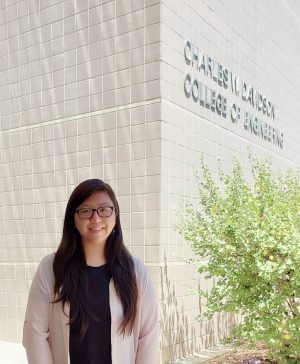 Kyna earned her B.S. from UC Davis in Biological Sciences with an emphasis in Medical Microbiology, and then decided that she wanted to pivot to engineering. After taking engineering, math, and science classes at Laney College, she was able to apply directly to graduate programs. She is now working on her M.S. degree in Materials Engineering at San Jose State. Kyna says "The engineering classes served as my engineering knowledge fundamentals for my engineering master's degree since I came from a biology undergraduate background. I feel like I was well prepared for many of the materials graduate level courses and research because of the engineering courses I took at Laney College."
Kyna earned her B.S. from UC Davis in Biological Sciences with an emphasis in Medical Microbiology, and then decided that she wanted to pivot to engineering. After taking engineering, math, and science classes at Laney College, she was able to apply directly to graduate programs. She is now working on her M.S. degree in Materials Engineering at San Jose State. Kyna says "The engineering classes served as my engineering knowledge fundamentals for my engineering master's degree since I came from a biology undergraduate background. I feel like I was well prepared for many of the materials graduate level courses and research because of the engineering courses I took at Laney College."
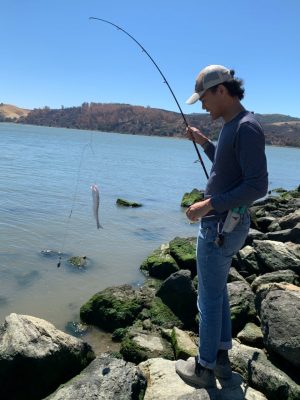 After Miles earned his B.A. in Environmental Science from Willamette University, he decided he wanted to pursue a more technical graduate degree. Miles took engineering, math, and science classes at Laney College to gain foundational knowledge, and then applied directly to graduate programs. He will be starting his M.S. degree in Data Science at University of Illinois in the spring. Miles says "The classes at Peralta filled in some of my gaps in knowledge and helped me complete requirement for different programs I was applying to."
After Miles earned his B.A. in Environmental Science from Willamette University, he decided he wanted to pursue a more technical graduate degree. Miles took engineering, math, and science classes at Laney College to gain foundational knowledge, and then applied directly to graduate programs. He will be starting his M.S. degree in Data Science at University of Illinois in the spring. Miles says "The classes at Peralta filled in some of my gaps in knowledge and helped me complete requirement for different programs I was applying to."
Concurrent or Dual Enrollment as a high school student
Many high school students have taken our classes as concurrent or dual enrollment classes. Taking college courses while you are in high school can help you explore your different interests and can help boost your application and make you stand out as an exceptional student when applying to universities.
Our most popular classes for current high school students are
- ENGIN 10 - Introduction to Engineering (no pre-requisites)
- ENGIN 22 - Engineering Graphics (pre-requisite: trigonometry)
- ENGIN 77 - Programming for engineers using MATLAB (no pre-requisites)
Check back soon for spotlights on some of our students who have taken Laney classes as high school students and then gone on to different universities
Gaining technical and analytical skills
Many students take our classes to gain a technical and analytical background either for a job or personal projects they are working on.
Our two most popular classes with students who are looking to improve their technical skills are
- ENGIN 22 - Engineering Graphics (pre-requisite: trigonometry)
- learn to use a 3D modeling software called Fusion 360, laser-cutters, and 3D printers
- ENGIN 77 - Programming for engineers using MATLAB (no pre-requisites)
- learn to program and to solve engineering problems using coding
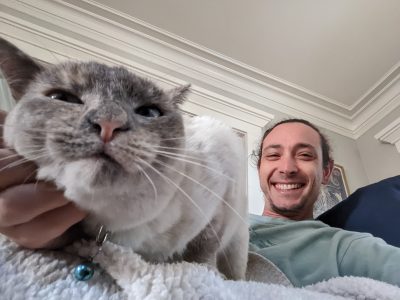 Levi took ENGIN 22 - Engineering Graphics at Laney College and now works at the Laney Fab Lab. The class provided him with experience reading technical drawings and using fusion 360 to create 3D CAD models. Levi says "Building job skills in an academic environment gave me the opportunity to learn how to do things the right way, without the pressure of needing to prioritize output over technique that can often happen when learning on the job." Levi's advice to current and future Laney students: "Community college can be more than just a path to a 4 year college. There is so much Laney has to offer. Some of the best trades skills programs in the Bay are right here at Laney."
Levi took ENGIN 22 - Engineering Graphics at Laney College and now works at the Laney Fab Lab. The class provided him with experience reading technical drawings and using fusion 360 to create 3D CAD models. Levi says "Building job skills in an academic environment gave me the opportunity to learn how to do things the right way, without the pressure of needing to prioritize output over technique that can often happen when learning on the job." Levi's advice to current and future Laney students: "Community college can be more than just a path to a 4 year college. There is so much Laney has to offer. Some of the best trades skills programs in the Bay are right here at Laney."
Career Opportunities
Laney College offers the lower division engineering major preparation courses as well as the science and mathematics courses required for transfer. After finishing their transfer requirements at Laney College, our students go on to study many different types of engineering.
Below is a list of different engineering majors our students have studied once transferring. Click on the + signs to read more about each major, and to read about the experiences of former students who have chosen that major
Aerospace
Aerospace Engineering involves the design, analysis, and manufacturing of aircraft, missiles, and spacecraft.
At some universities, Aerospace Engineering is part of the Mechanical Engineering department.
Einstein completed his pre-requisites at Laney before transferring to Cal Poly to pursue a degree in Aerospace Engineering. He says he chose Aerospace as his major because he thinks it is the major that will allow him and his to abilities to reshape and question the nature of reality itself. He started with architecture before switching to civil engineering. Then he worked his way from civil engineering to aerospace engineering; with the help of my engineering professor, Barkdull Mallory, and his time with NASA through NASA's Community College Aerospace Scholars.
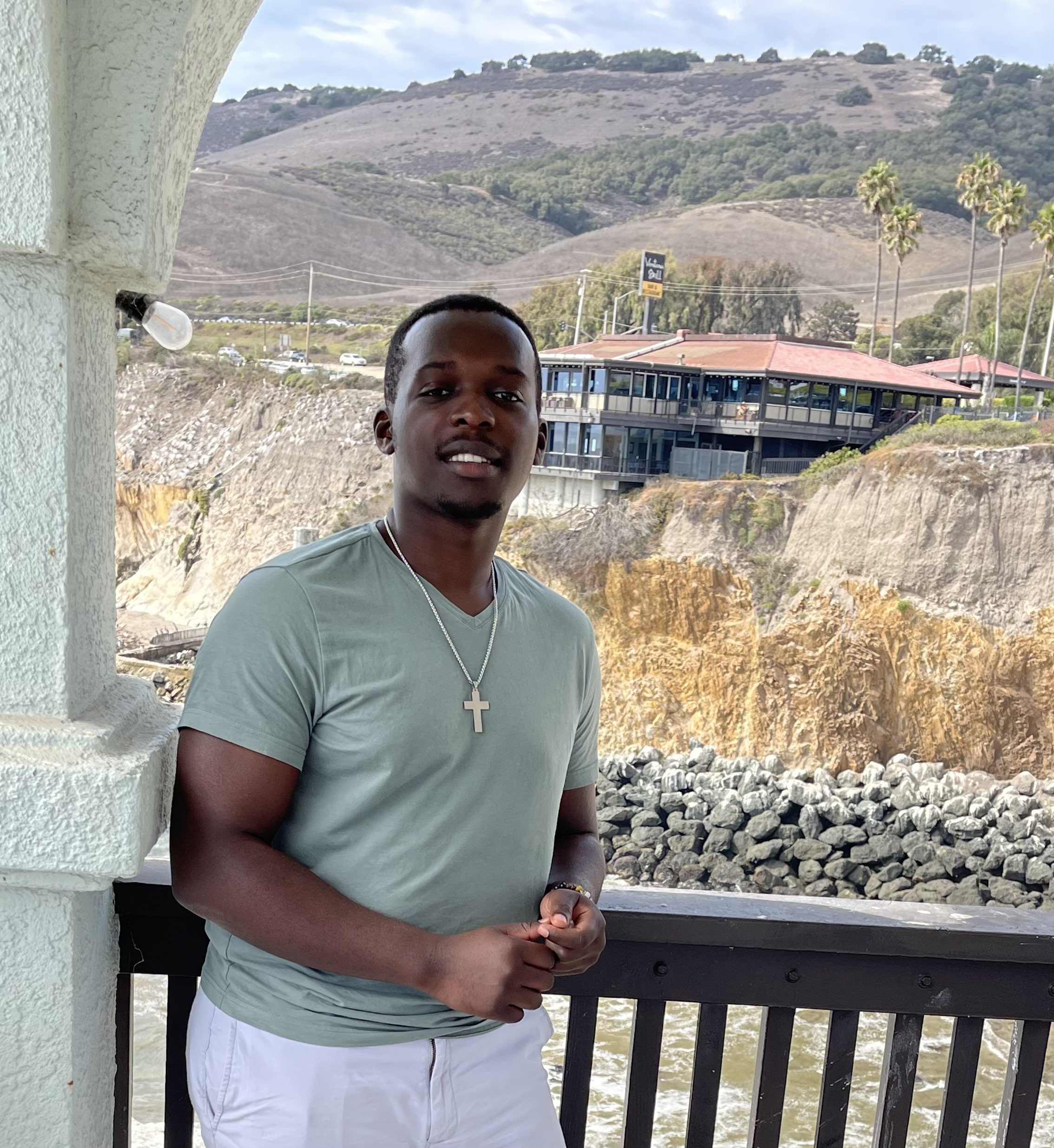
Chemical
Chemical Engineering involves the production, transformation, and transportation of materials. Chemical engineers process raw materials into refined products. Biochemical engineering is a subset of chemical engineering and combines biological processes with traditional chemical engineering.
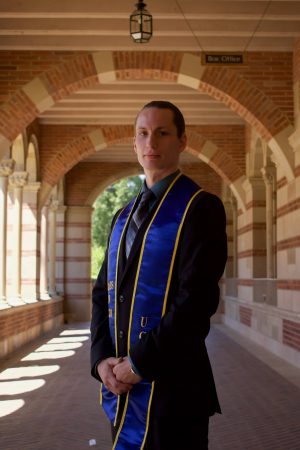
Markus finished his pre-requisites at Laney College before transferring to UCLA to study Chemical and Biomolecular Engineering. Markus chose this as his major because because it is at the intersection of fundamental science and industrial productivity. The biomolecular focus specifically sits on the cutting edge of the developing biotech industry which is booming in food, energy and medicine. CBE calls on concepts from a wide array of disciplines; chemistry, physics, biology, computer science and engineering techniques all connected towards efficient and consistent production of essential good for our modern way of life. Markus has finished his B.S. degree at UCLA and is now pursuing a Ph.D. in the same major.
Civil
Civil Engineering involves the design, construction, and maintenance of the foundations of modern society. Civil Engineers work in disciplines including transportation (roads and bridges), drinking water systems, energy systems, buildings, infrastructure, natural disaster mitigation, and coastal preservation.
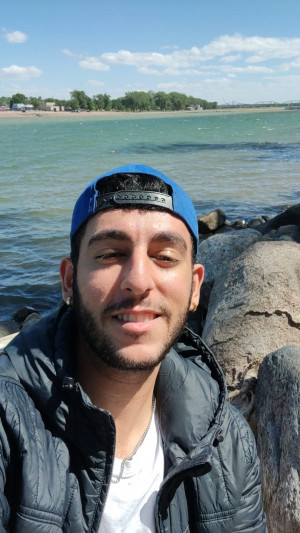 After completing his lower division coursework at Laney College, Jacob transferred to UC Berkeley to study Civil Engineering. Jacob picked Civil Engineering because he wants to help design and build sustainable housing for the homeless community in the Bay Area. He also saw Civil Engineering as a way to combine his love for architecture with his math and science skills. He is actively involved with two Civil Engineering design projects at Berkeley - Cal Construction and Sustainable Solutions.
After completing his lower division coursework at Laney College, Jacob transferred to UC Berkeley to study Civil Engineering. Jacob picked Civil Engineering because he wants to help design and build sustainable housing for the homeless community in the Bay Area. He also saw Civil Engineering as a way to combine his love for architecture with his math and science skills. He is actively involved with two Civil Engineering design projects at Berkeley - Cal Construction and Sustainable Solutions.
Computer
Computer Engineering combines Electrical Engineering and Computer Science. Computer Engineers work to design and implement computer hardware and software.
Computer Engineering is sometimes within the same department or major as Electrical Engineering.
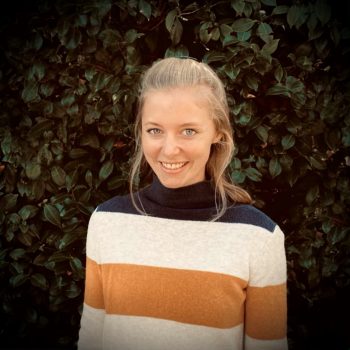 Jennifer completed her lower division engineering classes at Laney College before transferring to UCLA to study Computer Engineering. Taking classes at Laney gave Jennifer the confidence and skills she needed to reach her goals. Jennifer was also integral in forming the Laney Engineering Club
Jennifer completed her lower division engineering classes at Laney College before transferring to UCLA to study Computer Engineering. Taking classes at Laney gave Jennifer the confidence and skills she needed to reach her goals. Jennifer was also integral in forming the Laney Engineering Club
Computer Science
Computer Science is the study of computers and computational systems. Computer Scientists might work in software development, artificial intelligence, machine learning, or cyber security
Electrical
Electrical Engineering involves the transmission of power and of information. Electrical engineers design and build electric generators, transformers, electric motors, radios, televisions, computers, antennae, instrumentation, and controllers. Electrical engineering is currently the largest engineering discipline- accounting for over 25% of all engineers.
Environmental
Environmental Engineering is the application of engineering, ecology, biology, and chemistry to solve environmental problems. Environmental Engineers may work with drinking water systems, waste water systems, solid waste disposal, wetland restoration, or storm-water management.
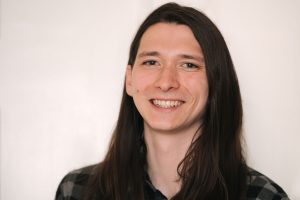
Kyle transferred to Cal Poly Humboldt after finishing his pre-requisites at Laney to study Environmental Engineering. Kyle says he chose environmental engineering because he wants to use engineering to solve problems related to the sustainable usage of vital resources like water and energy.
Industrial
Industrial Engineering is concerned with the optimization of complex processes, systems, or organizations. Industrial Engineers work to create efficient systems, and may work in manufacturing, information systems, or packaging.
Materials Science
Materials Science ombines engineering, physics and chemistry principles to research and design new materials and new methods of processing materials. Materials engineers and scientists solve real-world problems associated with nanotechnology, biotechnology, information technology, energy, manufacturing and other major engineering disciplines.
Mechanical
Mechanical Engineering is one of the broadest engineering disciplines. Mechanical Engineers design, analyze, manufacture and maintain mechanical systems. Once graduating with a degree they can work in a variety of fields including robotics, renewable energy, automobile design, nanotechnology, and rocket propulsion.
Student Resources
Engineering is a difficult major, and we want you to succeed. Below are some of the academic support programs that we offer to our students
STEM Core
STEM Core is a cohort program designed to get students calculus ready within a year. The program offers students tutoring, academic support, workshops, industry tours, and access to internships.
Students in STEM Core need to take the following classes
- Fall Semester
- ENGIN 10 - Introduction to Engineering
- MATH 50 - Trigonometry or MATH 1 - Pre-Calculus
- Spring semester
- ENGIN 22 - Engineering Graphics
- MATH 1 - Pre-Calculus or MATH 3A - Calculus I
Students interested in STEM Core can apply here
AvenueE
AvenueE is designed to help community college transfer students smoothly transition to UC Davis, and ultimately, a career in engineering or computer science.
AvenueE starts at your community college and provides academic and career supports and enrichment opportunities. If you are admitted to UC Davis and are selected to participate in AvenueE, this support will continue after you transfer to UC Davis.
This program is designed for students who possess a demonstrated commitment or potential for leadership to positively impact the elimination of barriers that prevent full participation of women and underrepresented minorities in Engineering and Computer Science.
Students interested in AvenueE can apply here
Tutoring
We typically have a tutor each semester to provide support to our engineering students. Students who need access to a tutor should contact their instructor. Students can also access tutoring through the STEM Core program
Students requiring tutoring in math can visit the Laney Math Lab
Laney College Counseling
Because specific requirements vary among colleges and universities and between majors in different branches of engineering, students seeking transfer with an engineering major should consult with a Laney counselor to develop an appropriate Student Education Plan (SEP) and review CSU and UC engineering articulation agreements via the ASSIST website (www.assist.org) to ensure that all required courses for the major are completed.
Laney Fab Lab
The Laney Fab Lab is our campus Makerspace. In the Fab Lab, you'll find laser cutters, 3D printers, a CNC router, a vinyl cutter, and so much more! The Fab Lab is free and open for all students to use. Students can use the Fab Lab for academic and personal projects.
If you want to create things in the Fab Lab, but don't know where to start, we recommend checking out ENGIN 22 - Engineering Graphics where you will learn how to use the 3D modeling software needed to create your own designs and will learn how to use the 3D printers and laser cutters.




